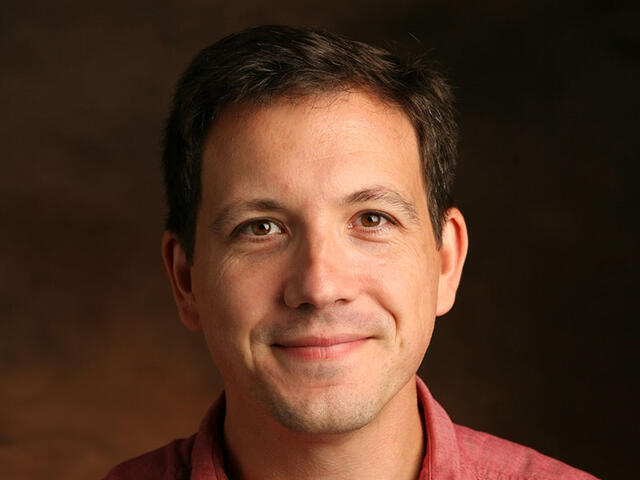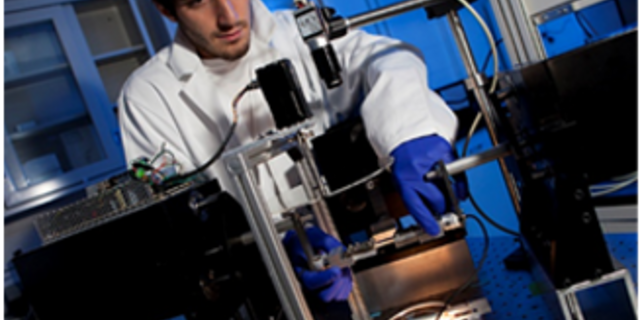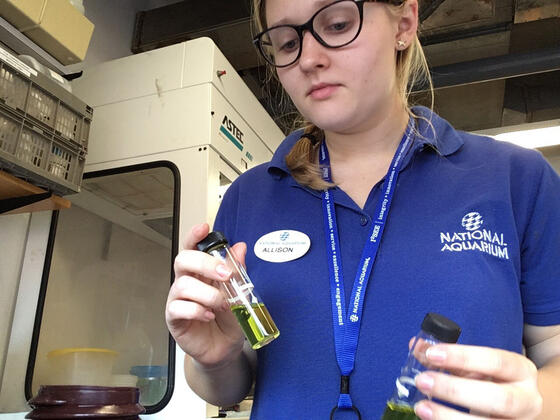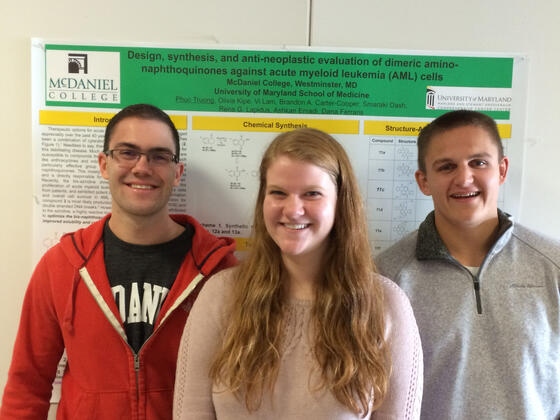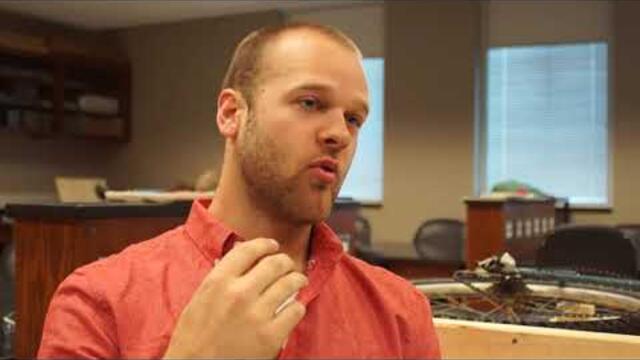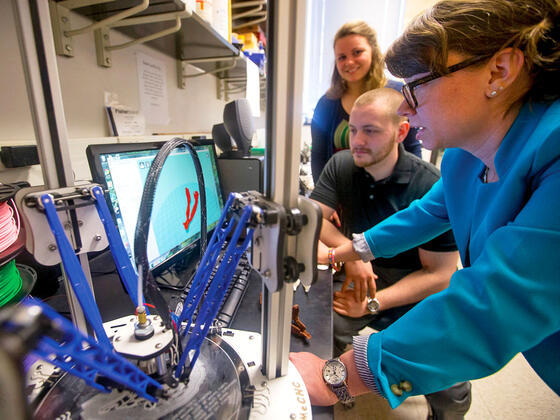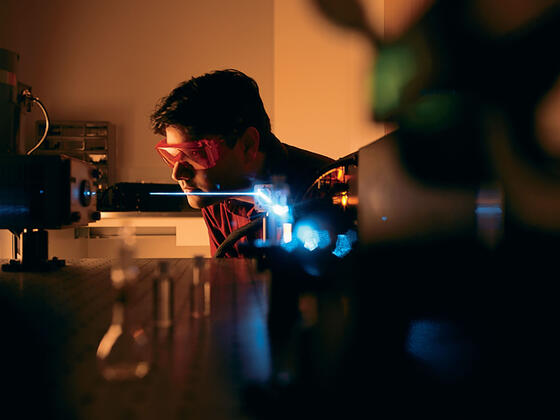Physics
Why? How? Why? How? Why? How? For many people who study Physics, these questions play on a loop—a soundtrack that drives them to understand the seeming mysteries at the heart of how our universe works. As a McDaniel Physics major, you can nourish this drive with hands-on access to great laboratories, helpful professors, thoughtful course sequences, and deep-dive research experiences.
The McDaniel Commitment in Action
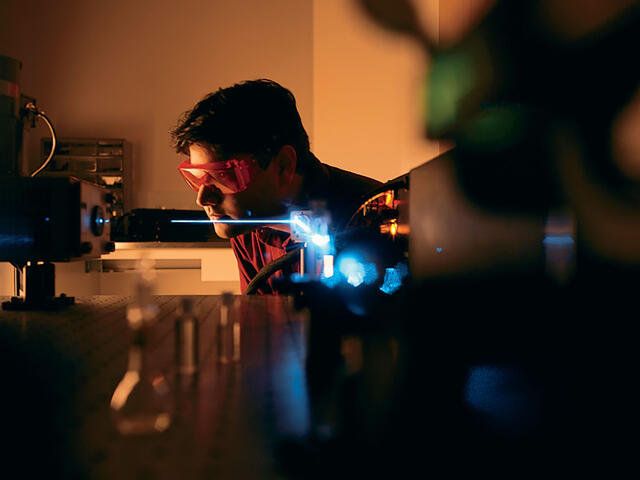
Dual Degree Engineering Programs and an In-House Engineering Specialization
Senior Capstone
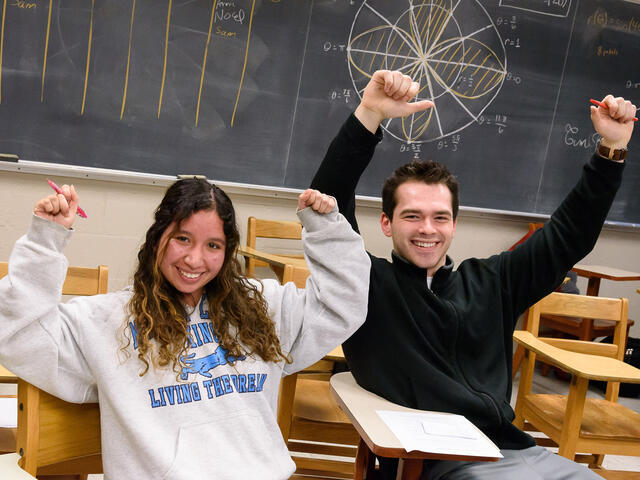
A Contest of Logic Estimathon: A contest of logic and strategy Applying Your Knowledge
Team PChem — Physics major Dimitri Lezcano and Chem major Kathalyn Urquizo — snatched first place in the second annual Estimathon that saw science, Math and two Business Administration majors dipping deep into their information wells and mustering every ounce of their skills in logic to answer 13 questions.

Alumni Spotlight Jeff Groff ’01
Jeff Groff ’01 is Professor of Physics and chair of a department at a university that doesn’t offer a degree in Physics. In fact, he embraced the opportunity to explore a new field and enrich it with his unique expertise – ultimately earning West Virginia Professor of the Year honors and making exciting innovations to the Environmental Studies program at Shepherd University.
